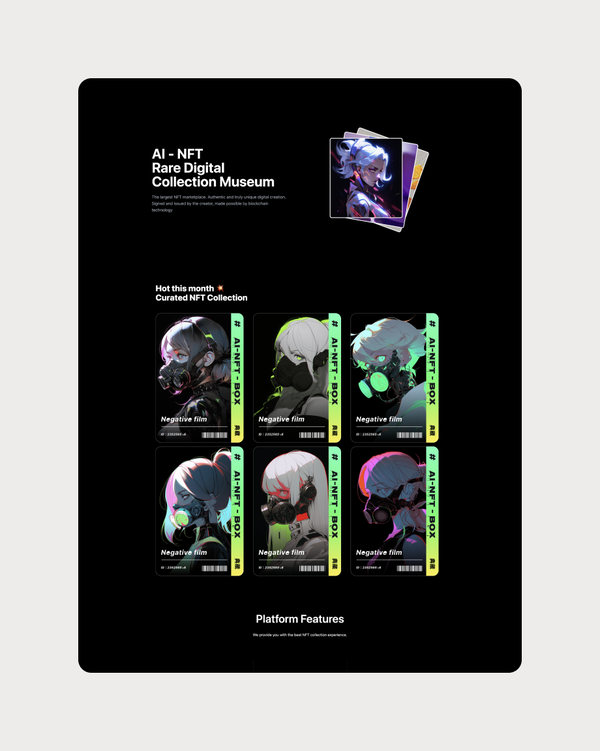Free AI Websites Trends
How to Master Free AI Websites
Free AI Websites
In today’s digital age, the internet has become an integral part of our daily lives. With millions of websites available at our fingertips, it can be overwhelming to find new and interesting websites to explore. This is where a random website generator comes in handy.

Free AI Websites Checklist
Free AI Websites
AI web builders utilize advanced algorithms and machine learning to automatically design and build websites based on user input and preferences. This technology eliminates the need for manual coding, design, and development, making it accessible to individuals and business owners without technical skills.
One of the key features of AI web builders is their ability to generate unique designs tailored to the user’s needs. By analyzing thousands of templates and design elements, AI algorithms can create a visually appealing website that reflects the brand’s identity and message. Users can also customize these designs by adjusting colors, fonts, layouts, and images to create a website that stands out from the competition.
In addition to design customization, AI web builders also offer advanced features such as mobile responsiveness, SEO optimization, and e-commerce capabilities. These tools ensure that websites are optimized for various devices, search engines, and online transactions, making them more effective in reaching and engaging target audiences.
Another advantage of using AI web builders is their speed and efficiency. With traditional web design methods, creating a website from scratch can take weeks or even months. In contrast, AI web builders can generate a fully functional website in a matter of hours, saving time and resources for users. This rapid turnaround time allows businesses to quickly establish an online presence and start generating leads and sales.
Furthermore, AI web builders offer scalability and flexibility to accommodate the changing needs of businesses. Users can easily update, modify, or expand their websites without the need for technical expertise or assistance. This agility enables businesses to stay competitive in a dynamic market by adapting to new trends and technologies quickly.
Despite its many benefits, some may argue that AI web builders lack the personal touch and creativity of human designers. While it is true that AI algorithms are limited by predefined rules and patterns, these tools can still produce visually appealing and functional websites that meet the user’s requirements. Moreover, users can add their unique touch to the design by incorporating original content, images, and branding elements.
What is responsive web development?
Responsive web development is the practice of designing and building websites in a way that allows them to adjust and adapt to different screen sizes and devices. This means that a website will look and function properly on a desktop computer, a smartphone, a tablet, or any other device with a screen.
There are several key components of responsive web development that make it effective. These include:
1. Flexible grids: One of the main principles of responsive design is the use of flexible grids that can scale proportionally to fit different screen sizes. This allows for a website to maintain its layout and structure regardless of the device it is being viewed on.
2. Media queries: Media queries are CSS3 modules that allow developers to apply different styles based on the size of the screen. By using media queries, developers can create specific styles for different screen sizes, ensuring that a website looks and functions properly on all devices.
3. Fluid images: Another important aspect of responsive design is the use of fluid images, which can scale proportionally to fit different screen sizes. This prevents images from becoming distorted or cut off on smaller screens, ensuring a consistent user experience.
4. Mobile-first approach: With the increasing use of smartphones and tablets, it has become common practice to design websites with a mobile-first approach. This means that developers start by designing the mobile version of a website first, and then adapt it for larger screens. This approach ensures that a website is optimized for mobile devices, which are used by a majority of users.
Benefits of responsive web development
There are several key benefits of responsive web development, which make it essential for modern website design. These include:
1. Improved user experience: Responsive websites provide a seamless user experience across all devices, ensuring that users can easily navigate and interact with a website regardless of the device they are using. This leads to higher user satisfaction and increased engagement.
2. Higher conversion rates: With the increasing use of smartphones for online shopping and browsing, it is essential for e-commerce websites to be responsive. Responsive design ensures that users can easily make purchases and complete transactions on any device, leading to higher conversion rates and increased sales.
3. Better SEO performance: Search engines such as Google prioritize responsive websites in search results, as they provide a better user experience. Responsive design can improve a website’s SEO performance, leading to higher rankings and increased organic traffic.
4. Cost-effective: Responsive web development can be cost-effective in the long run, as it eliminates the need for separate mobile websites or apps. By designing a single responsive website, developers can ensure that the website looks and functions properly on all devices, reducing the need for additional resources and maintenance.
Challenges of responsive web development
While there are numerous benefits to responsive web development, there are also some challenges that developers may face. These include:
1. Compatibility issues: With the wide variety of devices and screen sizes available, developers may encounter compatibility issues when designing a responsive website. It is important to test a website on different devices and browsers to ensure that it looks and functions properly on all platforms.
2. Performance optimization: Responsive websites can be slower to load on mobile devices, especially if they contain high-resolution images or complex features. It is important for developers to optimize the performance of a website to ensure fast loading times and a seamless user experience.
3. Complexity of design: Designing a responsive website can be more complex than designing a traditional website, as developers need to consider how the layout will adapt to different screen sizes. It is important to create a flexible design that can scale proportionally and maintain a consistent user experience across all devices.

Quick Free AI Websites Guide
Free AI Websites
Conclusion
In conclusion, website builders are a valuable tool for anyone looking to establish an online presence quickly and affordably. These platforms offer easy-to-use interfaces, customizable templates, built-in features, and quick deployment, making it easy for anyone to create a professional-looking website without any technical skills.
When choosing a website builder, consider factors such as ease of use, templates, features, pricing, and support to ensure you select the right platform for your needs. With the right website builder, you can create a stunning website that showcases your brand, products, or services and helps you reach a wider audience online.


